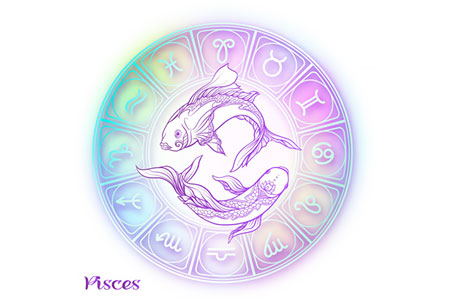self-care
Simple Ways To Reduce Your Stress Levels
 We all feel the effects of stress in our lives at the moment. This is an especially difficult time in the world, and it is challenging us in ways that we did not expect.
We all feel the effects of stress in our lives at the moment. This is an especially difficult time in the world, and it is challenging us in ways that we did not expect.
Stress is a feeling of being under way too much pressure. This pressure can come from different aspects of your daily life, such as career challenges, life transitions, relationship conflict, health problems, family issues and financial worries. Whatever the stressors in your life are, they can affect your well-being very negatively.
We all experience stress, but how we handle it affects our lives to various degrees. You might have tried different approaches, but not much has worked. Sometimes the solution is much simpler than one might realize. Here are some positive lifestyle tips to manage your stress levels. Even if you just apply a couple a day, these basic strategies can make a real difference in cultivating a calmer state and greater peace of mind.
Get Enough Sleep
Sleep is so important in so many ways, and so often neglected in our busy lives. Adequate sleep helps us to stay focused, heal is from within, and manage our days so much better.
If you are not sleeping well, or not getting enough sleep, make every effort to resolve this. It is probably the most important thing you can do to reduce your stress levels. I find meditation music or white noise very helpful, and taking short naps during the day are an excellent means to get extra rest.
Inspiration In A Time Of Crisis
 During this time of the coronavirus lockdown in Spain, I realize that I am fortunate, and for this I am very grateful. For example, I already work from home and I am also accustomed to a certain amount of social isolation, for reasons of choice, at least for the time being.
During this time of the coronavirus lockdown in Spain, I realize that I am fortunate, and for this I am very grateful. For example, I already work from home and I am also accustomed to a certain amount of social isolation, for reasons of choice, at least for the time being.
Furthermore, I can do and buy the necessary. Here in Spain, we are allowed to go out for necessities, to help the vulnerable, and to walk our dogs, but we are encouraged to keep our distance from others and make shopping a swift event. Again, getting shopping done as quickly as possible has always been my preference anyway!
But, even I am aware of missing the occasional coffee in town with a friend, or being able to travel back to the place I moved from last year, to have lunch with a special friend there. Where I live, people are very social and tactile, and interact at any given occasion. They love to meet at their neighbors’ homes, or in bars and restaurants, which are all currently closed.
I have been thinking how this situation might go one of two ways for many families, currently cooped up in small homes or apartments. They could become very frustrated, especially if there are small children confined in a small space. Or, they might get very creative with how to use their time, as well as appreciating being able to spend time with one another and their pets.
Meditation Made Easy
 No doubt you’ve heard of the many physical, mental and spiritual benefits of meditation. And like many people, you are keen to give it a go, but still don’t know where to start? Well, it doesn’t have to be complicated or intimidating. According to Shunryu Suzuki, the Sōtō Zen master who helped popularize Zen Buddhism in the United States, approaching meditation with a beginner’s mind is actually ideal.
No doubt you’ve heard of the many physical, mental and spiritual benefits of meditation. And like many people, you are keen to give it a go, but still don’t know where to start? Well, it doesn’t have to be complicated or intimidating. According to Shunryu Suzuki, the Sōtō Zen master who helped popularize Zen Buddhism in the United States, approaching meditation with a beginner’s mind is actually ideal.
The most common misconception it that meditation is a state of “thinking of nothing” or “clearing your mind.” It is simply impossible to not think at all. One would basically have to be totally unconscious to achieve that. Instead, meditation is a spiritual practice in which we learn to be more mindful – to center, breathe, and achieve greater calm, inner peace and clarity.
Meditation is about embracing whatever is happening in the present moment, but without getting caught up in any of it. Meditation is about going with the flow, instead of resisting or suppressing your thoughts and feelings.
Meditation in its various forms has been practiced by cultures all over the world for millennia. The oldest documented evidence of the practice of meditation has been found in ancient Indian wall art that dates back to approximately 5,000 to 3,500 BC.
Meditation is an awareness practice, or an enhanced state of consciousness. It does not have to be associated with a specific religion or spiritual tradition. Anyone can meditate, no matter what their belief system. It also does not have to involve sitting or lying passively. It can be anything from coloring mandalas, to taking a walk in nature.
Take Negative Emotions All The Way Home
 When life gets tough or something happens to upset me, whether it be big or small, I make it a point to become very quiet and mindful. I do this to get clear, so that I can see all sides of a situation, as well as stay open to learning any possible spiritual lessons that are being offered.
When life gets tough or something happens to upset me, whether it be big or small, I make it a point to become very quiet and mindful. I do this to get clear, so that I can see all sides of a situation, as well as stay open to learning any possible spiritual lessons that are being offered.
Typically, there’s a strong emotion linked to what has occurred. If I can allow it to be there in a calm way, I can start to see the situation from a clearer perspective.
If the situation involves being hurt, for example, I take some time out – long enough to not hastily defend myself or problem-solve. Doing this creates an opening where the Divine can step in and take over.
I like to think of it as having a weight on me and imagining a group of cherub angels coming along to lift the heavy burden emotions I’m experiencing. They then take it from me and fly away. Though this is just a visualization, there is great relief at times in turning situations over to a higher power.
I have noticed, as I get older, that certain things that used to bother me so much, and would take weeks or months to get over, I now release in just a day, or even a couple of hours. This is because I no longer allow myself to be overwhelmed by the emotion in the moment.
I believe what helps to accomplish this is going beyond the difficult emotion, into a realm or a land less frequented. I refer to is as “taking it all the way home.” What I mean by this is to examine what it is I am most afraid of.
Making The Most Of Pisces Season
 Today we are entering Pisces season. The Sun moves into the zodiac sign of Pisces every year from February 18th through March 20th, and activates our compassion, intuition and imagination. This is a cycle where we are able to get in touch with our deeper emotions and heal any issues that might be weighing us down.
Today we are entering Pisces season. The Sun moves into the zodiac sign of Pisces every year from February 18th through March 20th, and activates our compassion, intuition and imagination. This is a cycle where we are able to get in touch with our deeper emotions and heal any issues that might be weighing us down.
Pisces is a mutable, water sign, which allows us to be more flexible and go with the flow of the Universe. Now is not the best time for planning and taking action, but great for reflection, journaling, artistic expression and dreaming.
Technically, Pisces is the last sign of the zodiac and shows us the accumulation of what we have learned in the past year. It also helps us release in order to prepare for the next cycle in Aries.
The negative aspects of Pisces brings up addiction issues, escapism, delusions, being overly sensitive and falling into a victim mentality. It can seem like we are swimming in circles in this period, so acknowledging our direction and any imbalances are vital.
The Sun in Pisces is also a good time to get in touch with our bodies, and to detoxify with lots of water, fresh whole foods, and upgrading our self-care routine. If you are unsure of where to start with exercise, more gentle movement activities, like Tai Chi, Yoga, Pilates or swimming in a body of water, will help create re-connection. It is all about taking your time and accepting where you are in your life.
Choose Your Tribe Wisely
 We need to face the fact that some people are unfriendly, heartless, and simply rude! I discovered recently why someone I know personally acts so unfeeling and uncaring towards others. She always seems so wrapped up in her own world and shows no regard for anyone else. This has brought about much dis-ease in her own family and she has also gone through numerous failed romantic relationships.
We need to face the fact that some people are unfriendly, heartless, and simply rude! I discovered recently why someone I know personally acts so unfeeling and uncaring towards others. She always seems so wrapped up in her own world and shows no regard for anyone else. This has brought about much dis-ease in her own family and she has also gone through numerous failed romantic relationships.
During a recent family gathering, I was observing her aura and noticed that she suffers tremendous guilt and envy of others. Meanwhile, she is always looking for acceptance and comfort from her many boyfriends, who only stick around until they find out how manipulative and vindictive she really is.
Spirit showed me that she truly hates herself and projects it onto others. She is just not happy and slowly drains the energy of those around her. They usually do not realize this until it is too late. I do wonder how those who orbit around this person can manage to stick around at all, as it seems dis-ease and drama just follows her everywhere she goes in life.
Before her sister’s funeral, she was even snapping and yelling at her youngest daughter for something as trivial as a puzzle piece accidentally dropped on the floor. I asked one of her other children how she grew up to be so loving and sweet, having been raised around that kind of negativity? She said the credit belonged to her grandparents, as well as a few other family members.
I refuse to be unkind to anyone. It is in my nature to be civil and courteous to everyone I meet. It is my motto to leave others feeling better than they were before I interacted with them. But many people, will not even smile, no matter what you say or do. Spirit says this is due to their ‘spark’ being blown out by their own bad life choices and negative thoughts. It’s a matter of free will.
